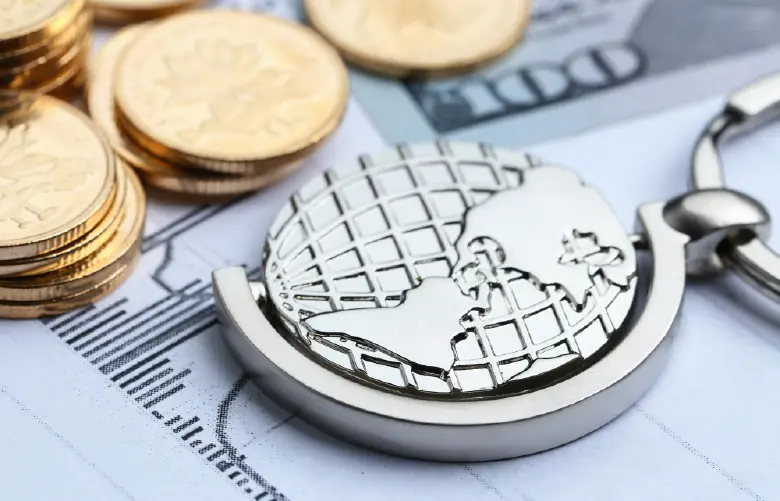Every country owns a standard currency used for trading and conducting business. Nevertheless, there isn’t any fixed exchange rate for the currency in the foreign market. This becomes a hindrance to global trade. This is where the various types of foreign exchange market come into the scene. The forex market addresses this issue efficiently by determining the exchange rate for each currency.
From here, this post will discuss the different types of foreign exchange market and the pros and cons of the forex market in detail.
What Is the Foreign Exchange Market?
The foreign exchange market (also known as Forex or FX) is the largest financial market in the world, with a daily turnover of around $5 trillion. It is an over the counter (OTC) market, meaning that trades are not conducted through a central exchange but rather between two parties directly. It is decentralized, with no single market center, and operates 24 hours a day, five days a week all over the world.

Forex allows investors to buy, sell, exchange, and speculate on currencies. It is the most liquid financial market in the world, and its participants include large banks, central banks, institutional investors, currency speculators, corporations, governments, and other financial institutions.

POSTGRADUATE PROGRAM IN
Multi Cloud Architecture & DevOps
Master cloud architecture, DevOps practices, and automation to build scalable, resilient systems.
Features of Foreign Exchange Markets
As mentioned earlier, the different types of foreign exchange market operate on a global online network. So, it has no physical location but functions 24 hours a day.
Read about Financial Analysis, Valuation, & Risk Management here.
The Foreign Exchange Market or forex market has the following features:
- The spot price, or the spot rate, is used to settle transactions.
- Delivery of the item occurs either right away or at T+2.
- Funds are sent instantly; else, settlement may take place at T+2.
- Trade is carried out by an “open nation” of bids, offers, and amounts in a competitive setting.
- All buyers and sellers agree to conventional contract conditions, and only the price is subject to negotiation.
- Participants who are not members transact with brokers.
- Participants often interact directly with broker-dealers when trading through telex or telephone.
- The parties confidentially discuss all contract details.
- Principal-to-principal transactions are the norm for participants.
- Swaps might assist the party in lowering the risk associated with market swings.
- Swaps enable market participants to enter markets they were previously unable to.
- The cash flow exchange occurs from the underlying asset in a swap contract.
- Option contracts receive the values from the performance of the underlying asset’s market.
- Options have a predetermined price, known as the strike price.
- Investors use them for hedging to lower risk on other open holdings.
High Liquidity
The forex market offers high global liquidity, enabling you to trade different currencies that are free to sell or buy anytime.Market Transparency
It has a transparent market giving you full access to its information and data, allowing you to monitor the currency rate fluctuation on a real-time basis.Dynamic Market
It is a dynamic market where the currency rate changes every hour.Operates 24 Hours
The forex market operates twenty-four hours daily, allowing you to trade conveniently.
Keep reading below for detailed information on the types of foreign exchange market. You can also check out the Top 10 Types of Financial Services Offered in India.
Major Types of Foreign Exchange Market
1.The Spot Market
A spot market refers to one of the types of foreign exchange market, which is a financial market where commodities and financial instruments are exchanged for immediate delivery. Due to the fast processing of cash payments and the physical exchange of assets, the spot market is often referred to as the cash market or the physical market.
Features:
2.Futures Market
The future rate, sometimes referred to as the future payment and distribution rate, is required for all transactions in the futures market. This is among the important types of foreign exchange market. Because the transaction or agreement is more formal, the terms are guaranteed unchangeable and cannot be changed. Traders who handle most of the transactions receive a steady return on the assets. Regular traders prefer a future market transaction.

Features:
3.Forward Market
The forward market is among the types of foreign exchange market that entails exchanges that happen at a certain future date for a predetermined price. In other words, a contract to buy or sell foreign currency at a future date is made in the forward currency market today. Spot prices and forward rates are comparable, but delivery occurs considerably later. By utilizing the appropriate forward exchange contracts, this exchange assists exporters and importers in avoiding the difficulties of rate swings. Read this blog All You Need to Know About Foreign Exchange Market to know more.
Features:
4.Swap Market
An agreement to concurrently borrow one currency and lend another at a starting date, then exchange the amounts at maturity, is known as a foreign exchange swap (also known as an FX swap). Given that the exchanged sums are utilized as repayment collateral, it is helpful for risk-free financing.
Features:
5.Option Market
An option is among the types of foreign exchange market, which is a contract that allows an investor to buy or sell an underlying instrument, like a security, ETF, or even index, at a determined price over a definite period. Buying and selling ‘options’ are done in this type of market.
Features:
Advantages and Disadvantages of Foreign Exchange Markets?
Advantages
The advantages of the different types of foreign exchange market include the following:
- Since few regulations exist, investors may freely participate in this market.
- Any centralized entities or clearinghouses do not control the types of Foreign Exchange Market. As a result, the third party’s involvement is minimal.
- Many investors may access the foreign exchange market without paying any fees.
- The market enables simple admission and exit to the investors if they feel uneasy.
- The market is open 24 hours a day so investors may trade here without any time restrictions.
Disadvantages
The following are the disadvantages of the types of foreign exchange market:
- Although there are benefits to the unregulated market, there are dangers as well because there is no meaningful monitoring that can guarantee risk-free transactions.
- Leverage can increase earnings, but it can also result in significant losses.
- FX transactions offer lower residual returns than certain other assets since they only depend on the appreciation.
- The various types of foreign exchange market experience volatility at some point, and the forex market is no exception.
- Incomplete transparency in the forex market can hurt a trader because they have limited control over the trades being filed, might not receive the best rate, and may only be able to see certain information like quotes.
Conclusion
So, this was all about the five types of foreign exchange market. These markets enable quick and easy currency conversion. Open a demat trading account to invest in FX trading. The volume of foreign exchange transactions that are made each year has increased as a result of globalization. Want to know Top 10 Types of Financial Services Offered in India? Read the blog by Hero Vired.

82.9%
of professionals don't believe their degree can help them get ahead at work.
About the Author
Hero Vired is a top learn-tech firm that offers program relevant to the industry in collaboration with top universities to develop future change-makers.
What is the foreign exchange market?
How does the foreign exchange market work?
What are the 3 types of foreign exchange market?
What is the main function of the forex market?
- Facilitating currency conversion
- Provide the instruments for managing forex risks
- Enable the investors to speculate the profit market
What are the characteristics of the foreign exchange market?
- No physical existence
- 24x7 market operation
- The largest market in the world
- High liquidity
- Maintains complete transparency
- Variety of trading options
Updated on March 19, 2024
